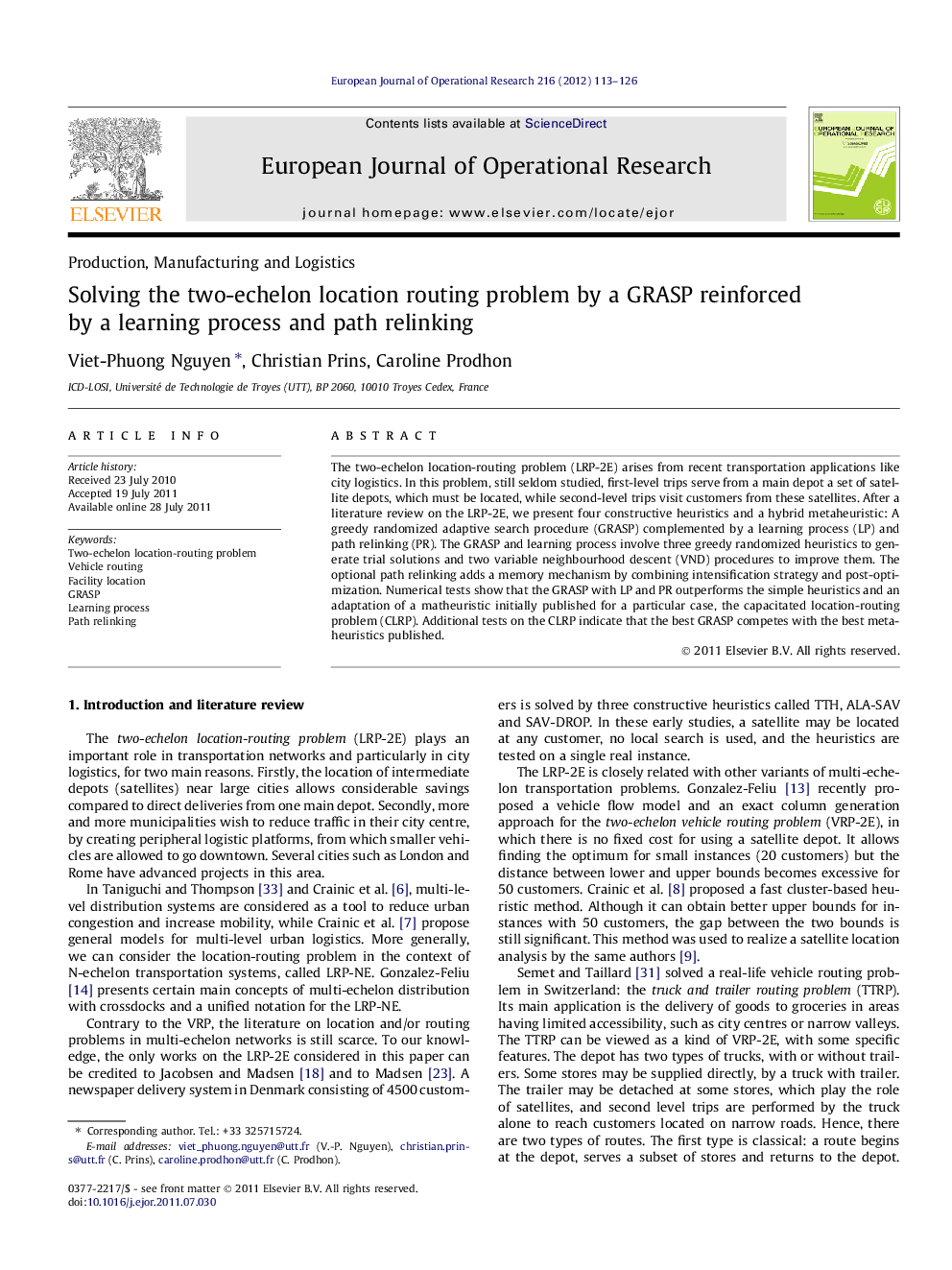| Article ID | Journal | Published Year | Pages | File Type |
|---|---|---|---|---|
| 480201 | European Journal of Operational Research | 2012 | 14 Pages |
The two-echelon location-routing problem (LRP-2E) arises from recent transportation applications like city logistics. In this problem, still seldom studied, first-level trips serve from a main depot a set of satellite depots, which must be located, while second-level trips visit customers from these satellites. After a literature review on the LRP-2E, we present four constructive heuristics and a hybrid metaheuristic: A greedy randomized adaptive search procedure (GRASP) complemented by a learning process (LP) and path relinking (PR). The GRASP and learning process involve three greedy randomized heuristics to generate trial solutions and two variable neighbourhood descent (VND) procedures to improve them. The optional path relinking adds a memory mechanism by combining intensification strategy and post-optimization. Numerical tests show that the GRASP with LP and PR outperforms the simple heuristics and an adaptation of a matheuristic initially published for a particular case, the capacitated location-routing problem (CLRP). Additional tests on the CLRP indicate that the best GRASP competes with the best metaheuristics published.
► LRP-2E arises from recent transportation applications like city logistics. ► The GRASP-LP involves three greedy randomized heuristics to generate trial solutions. ► They are improved by two variable neighbourhood descent (VND) procedures. ► PR – a memory mechanism combine intensification strategy and post-optimization.
